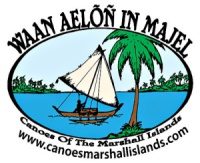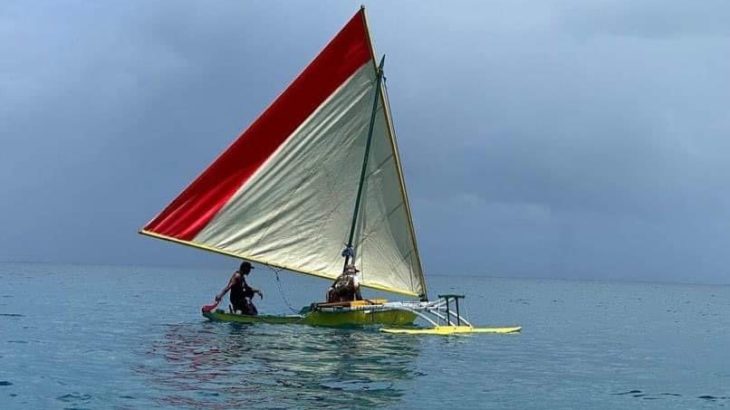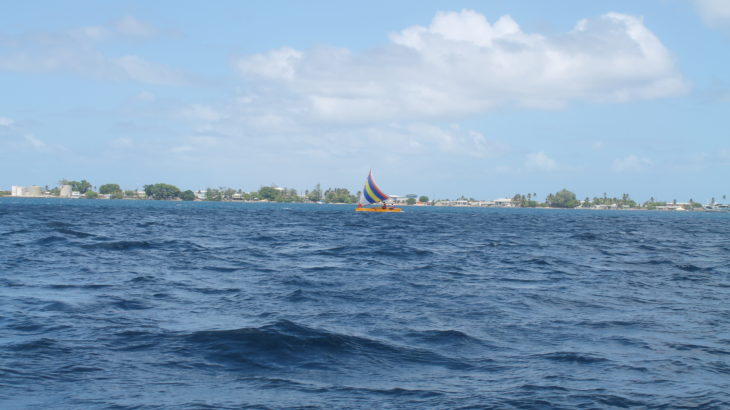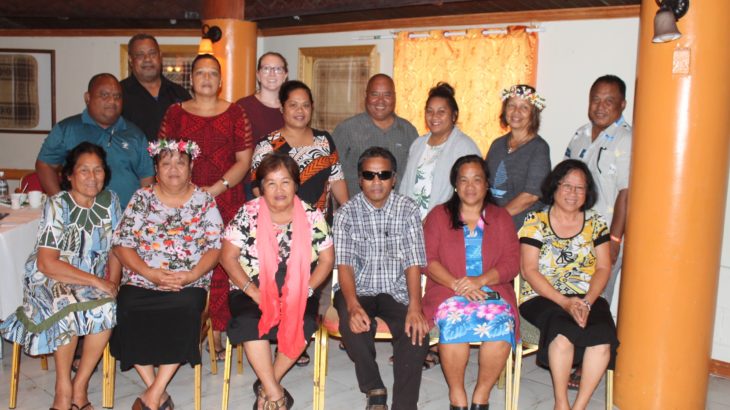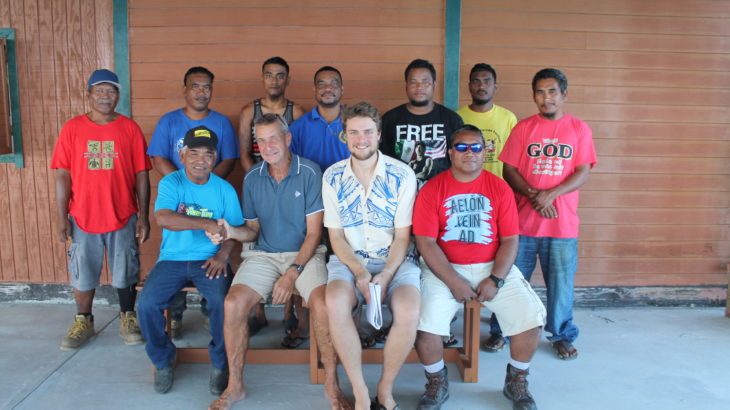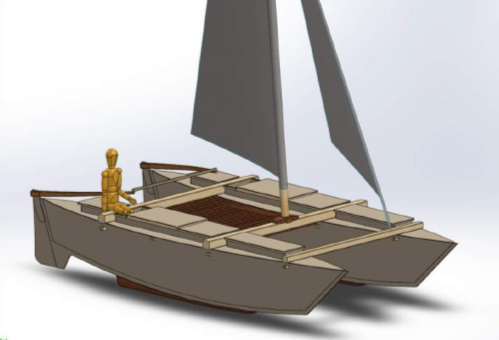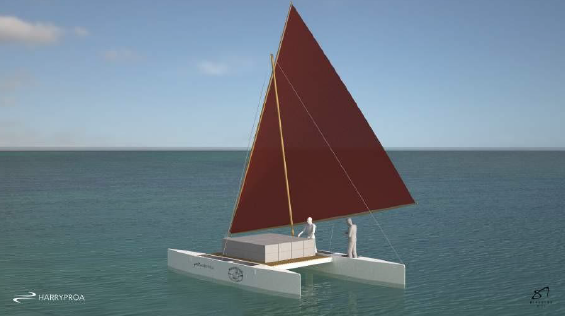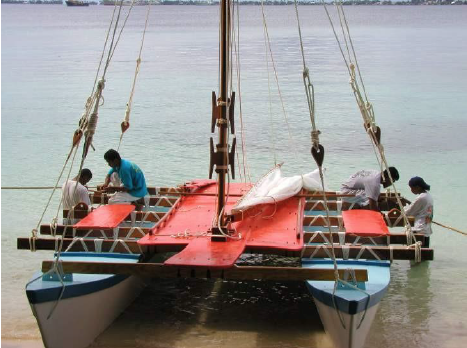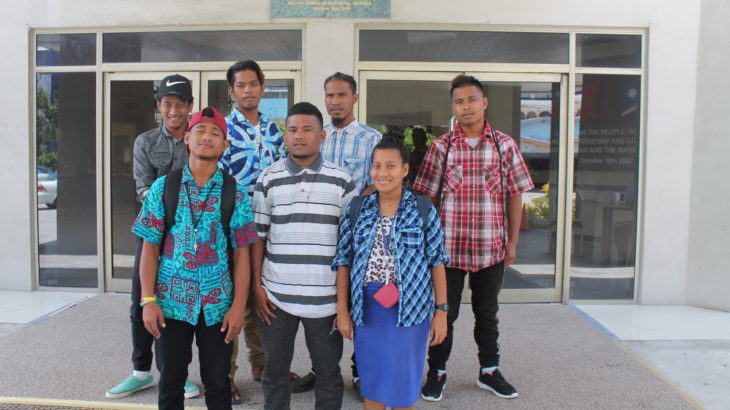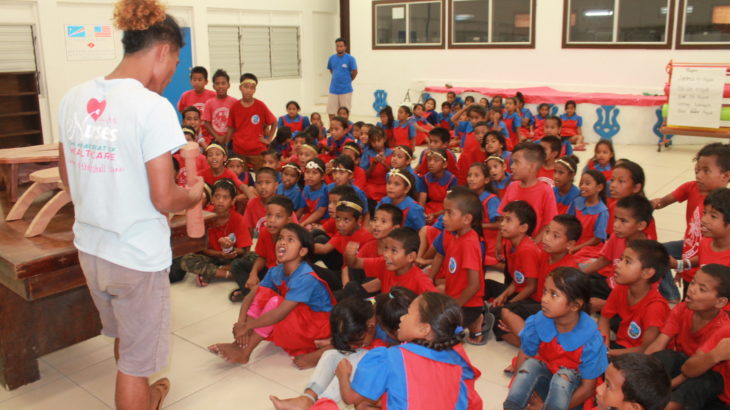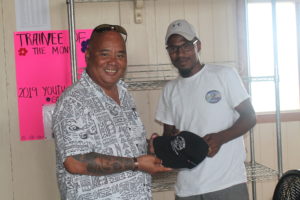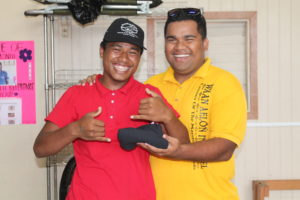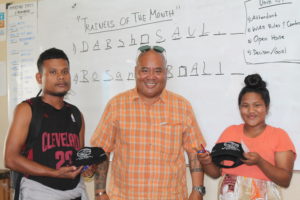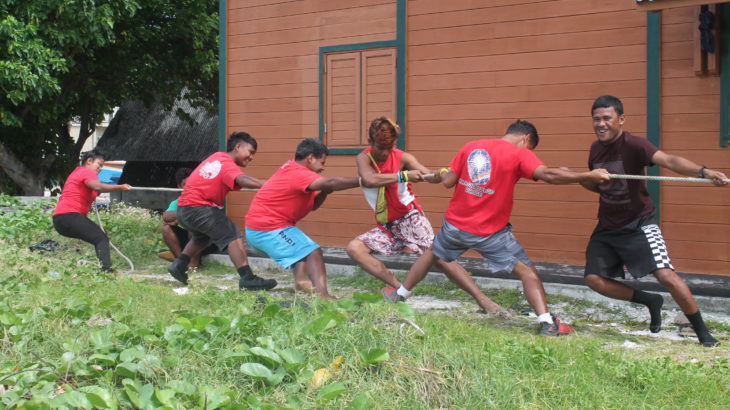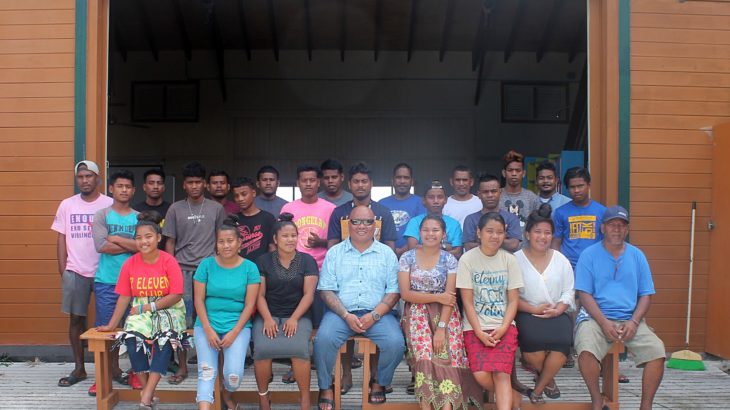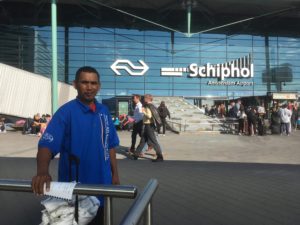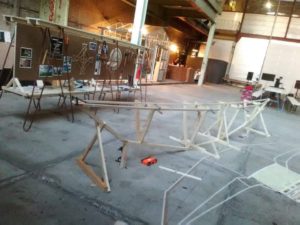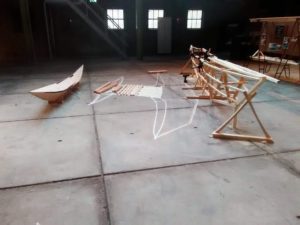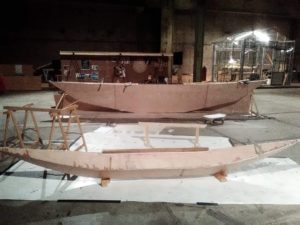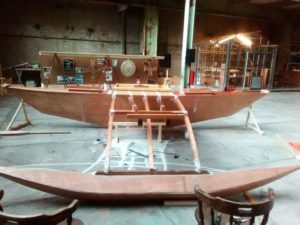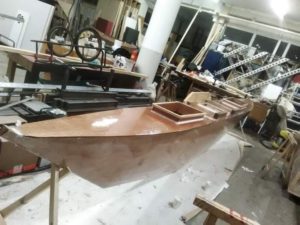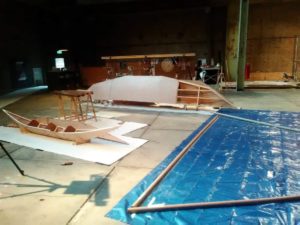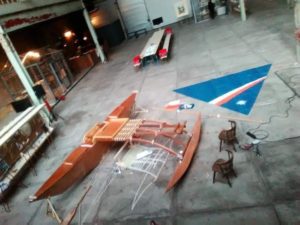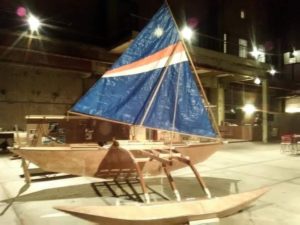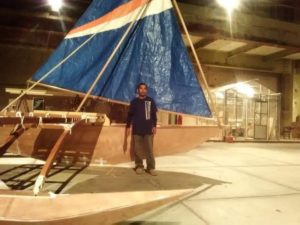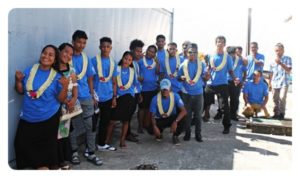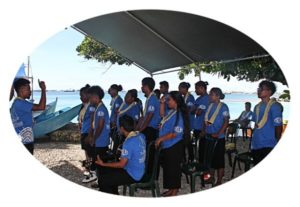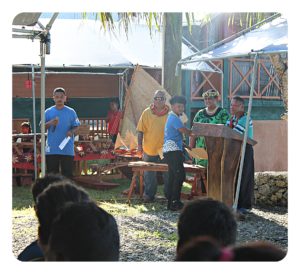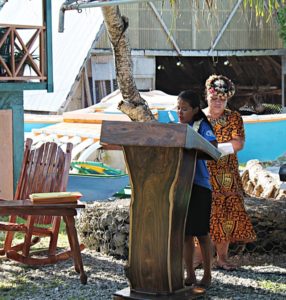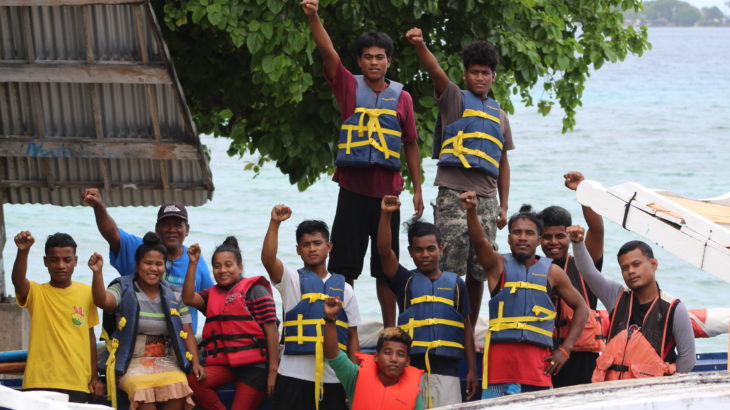
Sailing to Eneko trainee Angi Abal and crew member of Okeanos. Photo by: Rosan Bartolome

Unloading supplies at Eneko. Photo: Rosan Bartolome

Trainee Lajwi Saimon collecting red rock for underground oven Photo: Sealand Laiden

Traditional underground oven. Female counselor Rosan Bartolome, Bini Kelen, Binton Daniels, Helm, Susan Edward, and Caritha Hertin. Photo: Sealand Laiden

Trainer Binton Daniel teaching Atnel Tabu & Danny Henry how to weave Marshallese plate from coconut palm as trainer Gregory observes. Photo: Sealand Laiden
Every year one of the highlights of the WAM Life Skills Vocational Training Program is the Eneko Retreat. As part of the WAM NTC program, trainees are provided with the opportunity to learn traditional knowledge and skills (manit) and use them during a 4 day retreat to the islet of Eneko. This year, a total of 32 (22 trainees and 10 staffs including family members) participated in this event. One of the main objectives of this retreat is also to enhance the trainees life-skills, such as traditional life-styles, collaboration, communication, and substance abuse & drug abuse prevention.
Some of the activities covered during the retreat were fishing (line, throw & long-net), weaving of Marshallese baskets, under-ground cooking, cooking of traditional foods, and hunting. These activities are very important for the trainees to learn and understand as they are very much a part of the Marshallese culture. Many trainees have lived in the outer islands, but they said they learned a lot about Marshallese traditional skills that they never knew, while participating in this retreat.
WAM partnered with Kumit Bobrae Coalitions (KUMIT) and Okeanos Marshall Islands (OMI) during the retreat they helped WAM to provide valuable skills and knowledge. The Kumit Out-Reach team provided WAM trainees with an Out-Reach program that covered the topic of DUI’s (driving under the influence). Trainees really appreciated being able to understand how dangerous drinking and driving is and what can happen if you do so. By the end of their activity, 100% of the trainees vocally reported that the activity really enhanced their decision-making toward DUI. Later that same day the Okeanos of the Marshall Islands instructed the trainees on water safety and sailing. The two representative from Okeanos Marshall Islands made clear the importance of sailing without using fossil fuel.
Trainees also participated in various other activities to help them with collaboration, communication and team work skills:
- Tug of War
- Rely
- Race
- Catch Balloon
- Weave Marshallese Basket
- Volleyball
- Train
- Find the Quarter
- Sniper
- Talent Show
All these activities engage and involve the trainees, which facilitates a fun learning experience.
In order for the retreat to start, proceed, and end well WAM Staff and Trainers split trainees into 3 groups. Each group had two trainers and 1 counsellor assigned to it, this enabled each trainee to get the most benefit out of the retreat. These groups were assigned to rotate certain responsibilities, which included breakfast, lunch, and dinner preparation. The trainees were evaluated on the last day of the retreat and a survey was given to the trainees to express how they felt about this life changing retreat.

Trainee Danny Henry husking copar. Photo: Sealand Laiden

Master Canoe builder Binton Daniel demonstrating how to fix cast net to trainees with Director Kelen. Photo: Sealand Laiden

Master Canoe builder Binton Daniel teaching Atnel Tabu throw netting. Photo: Sealand Laiden

Competition in weaving of traditional plates out of coconut palm. Trainees Atnel Tabu, Danny Henry and Helmi Samuel. Photo: Rosan Bartolome

Tug of War a group activity. Photo: Rosan Bartolome

Kumit OutReach employee Junior Kaisha providing an activity on DUI. Trainees pictured are Henchi Tobey & Tom Schmidt. Photo: Rosan Bartolome.

Group photo of Director Kelen, Oceanos Manager Dustin Langidik, Henrik Richter-Alten, Binton Daniels and others. Photo: Sealand Laiden
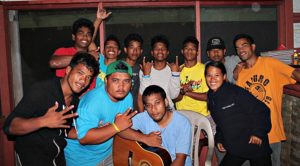
Luau nite Battle of the Bands. Trainees Walthy Wase, Nodrio Kaious, Helmi Samuel, Jason Riling, Branson Clanry, Alington Akilang, Tom Jr. Schmidt, Allen Akilang, Henchi Tobey, Angie Tobey and Trainer Gregory Jokray. Photo: Sealand Laiden
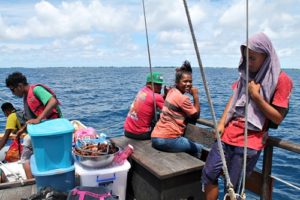
Sailing home from Eneko. Trainees Mighty Jormile, Susan Edward, Titus Zackious & Lajwi Saimon. Photo: Rosan Bartolome
